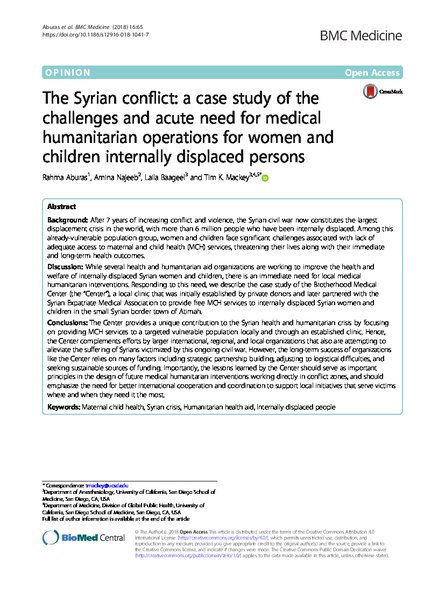
Background: After 7 years of increasing conflict and violence, the Syrian civil war now constitutes the largest displacement crisis in the world, with more than 6 million people who have been internally displaced. Among this already-vulnerable population group, women and children face significant challenges associated with lack of adequate access to maternal and child health (MCH) services, threatening their lives along with their immediate and long-term health outcomes.
Discussion: While several health and humanitarian aid organizations are working to improve the health and welfare of internally displaced Syrian women and children, there is an immediate need for local medical humanitarian interventions. Responding to this need, we describe the case study of the Brotherhood Medical Center (the “Center”), a local clinic that was initially established by private donors and later partnered with the Syrian Expatriate Medical Association to provide free MCH services to internally displaced Syrian women and children in the small Syrian border town of Atimah.
Conclusions: The Center provides a unique contribution to the Syrian health and humanitarian crisis by focusing on providing MCH services to a targeted vulnerable population locally and through an established clinic. Hence, the Center complements efforts by larger international, regional, and local organizations that also are attempting to alleviate the suffering of Syrians victimized by this ongoing civil war. However, the long-term success of organizations like the Center relies on many factors including strategic partnership building, adjusting to logistical difficulties, and seeking sustainable sources of funding. Importantly, the lessons learned by the Center should serve as important principles in the design of future medical humanitarian interventions working directly in conflict zones, and should emphasize the need for better international cooperation and coordination to support local initiatives that serve victims where and when they need it the most.